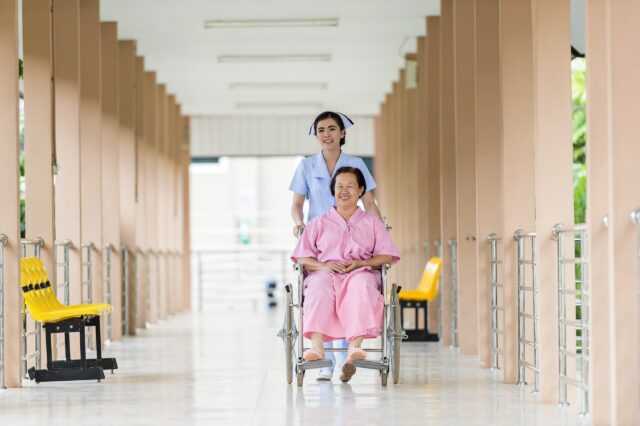
Overview rehab centers
Brain rehabilitation treatment helps people re-learn the functions they lost as a result of a brain injury. These may include daily activities, such as eating, dressing, walking or speaking. Brain injuries can affect people in different ways. People who have suffered serious brain injuries may suffer the following:
- Motor problems
- Emotional problems
- Memory and thinking problems
- Language problems
- Pain or numbness
rehab centers
Why is this done?
It can be difficult to return to independent living, work or school after brain injury. Mayo Clinic’s brain rehabilitation team helps people with brain injuries regain as many jobs — and help them become independent — as much as possible.
Stroke is the most common cause of brain injury and requires brain rehabilitation. A stroke occurs when there is a lack of blood flow to the brain or bleeding in the brain.
Many people treated at mayo’s brain clinic for brain rehabilitation suffered strokes. Other common causes of brain disorder include brain tumors and brain injuries caused by external forces — such as a fall or car accident — against the head or body.
What you can expect
Heart rehabilitation often begins in the hospital, sometimes by spending a few minutes a day exercising physically and mentally. You may need to rehabilitate the internal patient’s brain in a special facility after you are ready to leave the hospital but before you are ready to return home.
The inpatient health care team will help you move on to life at home independently, live at home with help or live in an out-of-home facility, during rehabilitation with the inpatient. Your team will work with you to help improve physical, mental and behavioral functions.
Treatment and treatment will depend on your individual needs. Brain rehabilitation specialists will work with you and your family to discuss treatment goals and determine ways to achieve those goals.
You may need outpatient rehabilitation. The outpatient rehabilitation program focuses on helping you improve physical, mental and behavioral functions so you can live and work as independently as possible after your condition stabilizes.
Mayo Clinic’s Brain Rehabilitation Center provides specialized care from any member of the brain rehabilitation team. The team members include doctors trained in physical medicine and rehabilitation, physiotherapists and professionals, speech and language pathologists, advanced practice nurses, and other specialists.
The Brain Rehabilitation Clinic offers several outpatient programs, including:
- Managing concussions. Mayo’s brain rehabilitation clinic leads comprehensive, coordinated and customized concussion clinical assessments. Care is also integrated between specialized teams in the departments of neurology, psychiatry, psychology, sports medicine, neurology, vestibular laboratories and balance.
This model of care, which focuses on the patient’s needs and is driven by evidence-based evaluation and results measurement, provides an ideal place for multidisciplinary, organizational and effective assessments of traumatic brain injuries causing concussions.
- Cognitive rehabilitation. In individual treatment sessions, specialist therapists work on cognitive rehabilitation with you to improve your thinking skills and increase your success in playing personal and professional roles.
- Professional coordination of cases. Mayo Clinic employees help you plan to resume work in your previous field, help you develop new career goals or find ways to best resume other productive activities.
- Neuromuscular brain rehabilitation program. Physiotherapists and brain-trained professionals use the latest approach to treating motor control and mobility deficiencies and to maximize reintegration into independent life.
- Rehabilitation of communication and language. In individual treatment sessions, speech and language pathologists work with you to reduce any language or other language restrictions in order to achieve the effective communication you may have.
- Brain Injury Coping Skills Group (BICS). Brain injury coping skills are a small group treatment program of 12 sessions and a two-hour session, which is co-facilitated by a neuropsychologist and a clinical social worker. The aim of this group is to help both brain injury survivors as well as family members or caregivers.
Education and training on brain injuries will be provided in the Brain Injury Coping Skills Program, and you will learn important skills to deal with the effects of your injury.
rehab centers rehab centers

